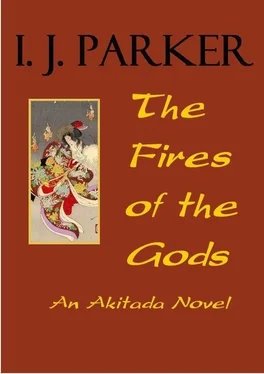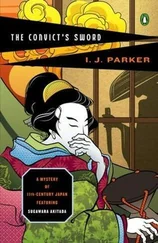I Parker - The Masuda Affair
Здесь есть возможность читать онлайн «I Parker - The Masuda Affair» весь текст электронной книги совершенно бесплатно (целиком полную версию без сокращений). В некоторых случаях можно слушать аудио, скачать через торрент в формате fb2 и присутствует краткое содержание. Жанр: Исторический детектив, на английском языке. Описание произведения, (предисловие) а так же отзывы посетителей доступны на портале библиотеки ЛибКат.
- Название:The Masuda Affair
- Автор:
- Жанр:
- Год:неизвестен
- ISBN:нет данных
- Рейтинг книги:3 / 5. Голосов: 1
-
Избранное:Добавить в избранное
- Отзывы:
-
Ваша оценка:
- 60
- 1
- 2
- 3
- 4
- 5
The Masuda Affair: краткое содержание, описание и аннотация
Предлагаем к чтению аннотацию, описание, краткое содержание или предисловие (зависит от того, что написал сам автор книги «The Masuda Affair»). Если вы не нашли необходимую информацию о книге — напишите в комментариях, мы постараемся отыскать её.
The Masuda Affair — читать онлайн бесплатно полную книгу (весь текст) целиком
Ниже представлен текст книги, разбитый по страницам. Система сохранения места последней прочитанной страницы, позволяет с удобством читать онлайн бесплатно книгу «The Masuda Affair», без необходимости каждый раз заново искать на чём Вы остановились. Поставьте закладку, и сможете в любой момент перейти на страницу, на которой закончили чтение.
Интервал:
Закладка:
After an affectionate greeting, Tora released the dog and tiptoed into the room he shared with Hanae. He made a moderate amount of noise removing his clothes and yawned loudly once or twice. When that produced no reaction from the sleeping form of his wife, he crawled under the blankets, sighed, and went to sleep.
His rest was disrupted when Trouble introduced himself to the night creatures roaming the Sugawara property, barking as he chased them through the shrubbery. With a sigh, Tora got up again to put him back in the stable.
In the morning, Tora informed the women that he was returning to Otsu, warning them about Ishikawa. Tamako and Hanae seemed unworried. Then, after eating a bowl of rice gruel, he saddled his horse and left.
His failure with Ishikawa gnawed at him. Besides, he had not exactly covered himself with glory in his questioning of Little Abbess. His master would want to know about young Masuda’s death. And about the old lord and his relationship with Peony before and after his son’s death. And why Ishikawa’s mother had visited. Little Abbess knew the answers to those questions, but Tora had only asked about Sadanori. The more he thought about it, the more questions popped into his head. He simply could not return to Otsu before seeing Little Abbess again.
In the courtyard outside her tenement, women were busy chattering and scolding their half-naked children while they hung out clothing or beat the dirt out of the straw mats they had slept on. For a copper, one of the older boys held Tora’s horse while he went to call on Little Abbess.
The elderly couple from the previous day already stood outside her door. The man had the brown-and-white jacket over his arm, and both looked put out. When they saw Tora, the wife cried, ‘Maybe you can get the lazy slut to open up. And you can have the jacket. We won’t buy such trash.’ She jerked it from her husband’s arm and pointed a sharp finger at some loose threads.
Tora knocked on the wooden door. It was broad daylight, and contrary to the mean-faced biddy’s opinion, Little Abbess had not struck him as lazy about her small business. When there was no answer, he gave the door a sharp push. It swung in on creaky hinges, and the sharp-nosed female let loose a shrill scream.
Inside, among her colorful bits of cloth, lay the plain brown body of Little Abbess. She was quite dead, her head resting in a pool of darkening blood.
NINETEEN
It was getting dark when Akitada finished with Doctor Inabe’s papers. He had not found what he was looking for. He rose, stretched his stiff back, and cast a final glance around the room. Someone would soon clean out the doctor’s possessions. He took the notebook that should have contained the entry for young Masuda’s death and the scroll with the bird drawings with him. Then he left the studio, closing the door behind him.
He called out for the old servant, but got no answer. Shaking his head, he walked away, first to the restaurant, where he had another excellent meal, and then to his lodging house.
Tomorrow he would report his failure to the warden. Takechi would solve the doctor’s murder – or perhaps not. It was time Akitada returned to the capital and his own work.
There was still the question of the boy’s parentage, of course. If Mrs Ishikawa identified the child as Peony’s, the Masudas or Peony’s people must be informed. If not, Akitada could buy him from the Mimuras and raise him himself.
It had been a long day, but he felt restless. Something had changed. Somehow, without his volition, his thoughts had turned from the boy to the tangled puzzle surrounding the dead Peony. He could not get a clear image of the woman. Was she a scheming and vengeful beauty who had killed her lover out of pique – or a helpless young woman who had loved a man above herself?
Back in his room, he called for more light and pored over Inabe’s notes. Again he scrutinized the pages, the dates, the entries carefully. This time, it seemed to him that the last entry before the break did not follow the system Inabe had established. Inabe normally identified his patients by gender, age, and complaint. Next he rendered his diagnosis and noted his treatment. Then he would leave a space, and at a later time – and with different ink – there would be a comment about the outcome. For some cases there were several visits and different prescriptions, but always an outcome would follow in the end.
Except for the last case before the break. The patient, a ten-year-old girl, had suffered from a fever, and over a period of two days Inabe’s herbal teas had failed to stop the fever. But he had never indicated if the child survived or died.
Surely that must mean that a page, or several, had been removed. And equally certainly they had dealt with young Masuda’s illness and death. But who had removed them? The doctor himself? Or his killer? The studio had not been sealed or guarded after the murder, and as Akitada had noted, the servant was not watching the place as the warden had assumed. Anyone could have taken the pages.
But whoever had removed them had been careful not to leave traces. The stitching was still quite tight. Akitada pursed his lips. Then he carefully tugged off the last sheet of blank paper. It ripped cleanly where it had been stitched. When he held it up against the light, he saw that next to the rips were old pin holes. The notebook had been taken apart and then sewn together again, and the new stitches had not quite met the old pin holes.
He sat back and considered this. The process of removing pages and then painstakingly re-sewing the rest seemed to him not the work of a man who had just committed a murder. It was totally out of character for the person who had bludgeoned the doctor and kicked a wounded crow to death. Neither was it likely that this person, or an accomplice, had returned later to do such time-consuming work. In that case, the whole notebook would have been taken. Therefore Inabe himself must have removed the pages.
The simplest answer to the ‘why’ was that something had been wrong about the young man’s death and that Inabe had been at least partially responsible. It might explain that note next to the entry about Peony’s drowning: ‘There is no end to my guilt.’ Inabe must have assumed, with the maid, that Peony had committed suicide after struggling hopelessly for another year after the young man’s death. Poison is readily available to a doctor, but would a man who tended so lovingly to birds kill a patient? And what was his motive? It made no sense.
Akitada sighed, blew out the candle, and went to sleep.
The next morning when he went to see the warden he found him with a youngish man who was short and corpulent and wore a mournful expression. His slightly flashy green-checked robe, black hat, and boots made Akitada think of a traveling peddler.
‘This is fortunate, sir,’ Warden Takechi said. ‘Mr Usuki here is the doctor’s nephew. He’s come to make the arrangements.’ He turned to the nephew. ‘Lord Sugawara is kindly taking an interest in your uncle’s murder. Perhaps he has some news for us.’
Mr Usuki bowed deeply, but the small, watchful eyes were suspicious. ‘Deeply honored,’ he murmured.
‘I have very little news, I’m afraid,’ Akitada said, seating himself. He expressed his condolences to the nephew, who became more mournful.
Akitada brought out the notebook, showed them the missing section, and explained his theory that Inabe had removed the pages himself. ‘Both Lord Masuda’s personal attendant and Lady Kohime attest to the close friendship between Dr Inabe and Lord Masuda. And as they accuse Peony of having poisoned young Masuda, I cannot help feeling that the doctor’s death is somehow connected with hers.’
Читать дальшеИнтервал:
Закладка:
Похожие книги на «The Masuda Affair»
Представляем Вашему вниманию похожие книги на «The Masuda Affair» списком для выбора. Мы отобрали схожую по названию и смыслу литературу в надежде предоставить читателям больше вариантов отыскать новые, интересные, ещё непрочитанные произведения.
Обсуждение, отзывы о книге «The Masuda Affair» и просто собственные мнения читателей. Оставьте ваши комментарии, напишите, что Вы думаете о произведении, его смысле или главных героях. Укажите что конкретно понравилось, а что нет, и почему Вы так считаете.












